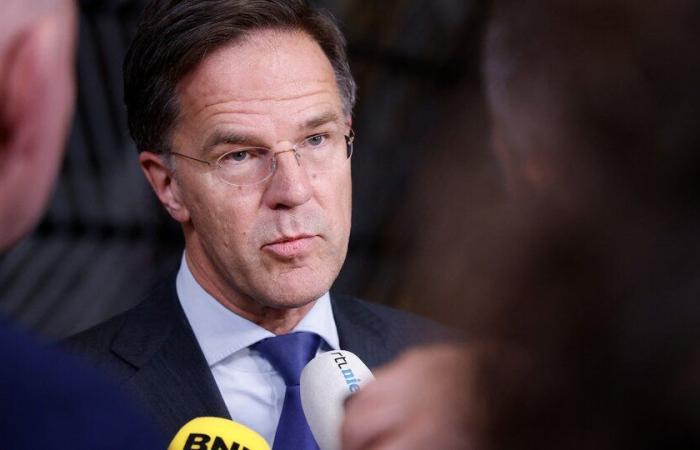On June 20 The 32 members of NATO decided that the former Prime Minister of the Netherlands, Mark Rutte, will be the next Secretary General of the organization from October.
Rutte’s selection marks an end to the long mandate of Norwegian Jens Stoltenberg, whose administration was extended four times due to the lack of internal agreements to choose a successor agreed upon by all governments, in a context of internal differences that were especially exacerbated by the war against Russia on Ukrainian territory.
To reach that position, the Dutchman carried out an extensive campaign of almost eight months, in which His main support, naturally, came from the United States government.. Later, the leaders of the United Kingdom, Germany and France would join in their support.
His main competitor was the president of Romania, Klaus Iohannis, who decided to launch his candidacy at the last minute, as a claim from Eastern Europe given the historical refusal of Western governments to support a candidacy from that political space.
Iohannis only had a single but strategic vote: that of Prime Minister Viktor Orban, who used his dissent to gain influence and withdraw Hungary from any type of support for Ukraine.
But The change in leadership does not mean a new orientation for NATO. In fact, the main challenge for the alliance will continue to be the support of Ukraine, in a war that has so far yielded few gains for the Atlantic countries, beyond the vast profits obtained by European and American arms companies.
In this sense, Rutte has been an unconditional supporter of Ukraine since the beginning of the conflict with Russia, in February 2022. The Netherlands is today the third largest European nation.then the United Kingdom and Germany, that contributed the most resources to the war against Russia: almost six billion dollars, providing F-16 fighter jets, artillery, drones and ammunition, and investing heavily in the modernization of the Ukrainian Army.
On March 1, while still serving as prime minister, Rutte signed a security agreement with Ukraine in which the Netherlands committed to financing the supply of 800,000 bullets. He also became the seventh Western leader to sign a security agreement with Ukraine that involved spending at least $2.2 billion over 10 years. Not in vain Zelensky publicly calls Rutte “my friend Mark”.
Beyond the war in Ukraine, the new NATO secretary general will have to confront a trend that threatens to weaken the bloc and could even motivate new internal confrontations. The November presidential elections could mark the return to power of donald trump who had already expressed interest in withdrawing the United States from NATOresponsible for a good part of its financial support in the face of insufficient contributions from other members of the organization.
Now, the Republican’s disagreement with the military and economic commitment to Ukraine and his deep criticism of Zelensky would be added. But a possible return of Trump to the White House would only be part of the problem to be faced by a leader with extensive experience and negotiating capacity like Mark Rutte.
Indeed, internal divisions could deepen if far-right parties and organizations gain access to other governments, as has already happened in Italy and the Netherlands, and as is feared could also happen soon in France. Definitely Isolationism and ultra-nationalism could clash with the will of the Eastern European countries which, instead, seek to deepen NATO’s current belligerent policy against Russia.
A scenario plagued by divergences and, eventually, growing internal fragmentation will turn the former strongman of Dutch politics into the providential leader capable of appealing to consensus to maintain political agreements and a basic core of programmatic coincidence.
Just in case, and in the face of those who naively believe that, due to his background, Mark Rutte will provide the NATO leadership with a more negotiating and even more compromising profile, all we have to do is review some of his recent statements. In April, during a parliamentary debate, he called for “not to mentally overestimate Putin (since he) is not a strong man, he is not a strong guy.”
And at the end of the recent international meeting for peace organized by Ukraine and with notable political absences, Rutte said that the Russian president “must be panicking” in the face of the “success” of the Kiev meeting. Paraphrasing Giuseppe Tomasi di Lampedusa, author of the famous The Leopardwith the appointment of Rutte at the head of NATO, a change is being brought about so that, in reality, nothing changes…


